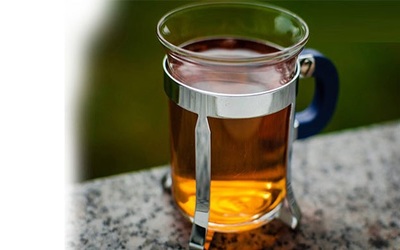Tea is considered to be the second most popular drink in the world, the first being water. According to research, tea originated in China, possibly as a medicinal drink. With time, information about its ability to restore good health attracted the Western countries like the Portuguese, who are considered to be the first Westerners to include tea in their menu. In India, Tea is popular across all the states with Assam and Darjeeling tea being one of the favorites throughout the country. With time, the original drink was modified through the addition of new ingredients and alteration of normal preparation. The following article discusses some of the most common types of tea and the unique tea benefits for health.
[the_ad id=”6214″]
Six different types of tea
- Black tea- Black tea accounts for about 78% of global tea consumption. Black tea is made from the leaves of Camellia Sinensis plant that are typically rolled and fermented before being dried and crushed. Each average cup of black tea contains 40 milligrams of caffeine.
- Green tea-Compared to black tea, green tea has more delicate flavors and a little amount of caffeine; about 25 milligrams per cup. Green tea is prepared using dried, and heat treated leaves that are not fermented. Compared to black tea, green tea comes with more health benefits.
- Oolong tea- Unlike black tea, oolong tea is commonly prepared using leaves which have been fermented for a shorter time before being crushed, a process which gives it a richer taste and higher amount of caffeine, about 30 milligrams.
- White tea– Since white tea is usually prepared using very young leaves, the end product frequently contains a much milder flavor as compared to all the other varieties. It also contains less caffeine; about 15 milligrams per cup.
- Flavored tea- Flavored tea is any standard tea prepared using different flavors that include cinnamon, orange peel, and lavender. Flavored teas normally have same levels of antioxidants and also same health benefits as unflavored ones.
- Herbal tea– From a technical point of view, herbal teas are not teas at all. According to analysts, these types of drinks are commonly prepared using different combinations of dried fruits, herbs and flowers. Herbal teas normally have no caffeine.
There are many different types of tea around the world. In continents like Asia and Africa, the various kinds are associated with unique benefits that they provide.
Here are 7 health benefits of tea
- Hydration: It is a common believe that caffeinated drinks such as coffee and tea cause dehydration. According to studies, this particular believe is misplaced and has no positive scientific backing. In fact, tea has been tested and scientifically accredited as being one of the most trusted sources of hydration.
- Alertness and mood: Consumption of moderate to average amounts of caffeine can easily help one improve his mental performance. According to analysts, caffeine typically boosts the energy levels within the body and in the process drive one to become more active both mentally and physically.
- Type 2 diabetes: Taking at least four cups of tea a day can quickly reduce the risk of developing type 2 diabetes by up to 16%. According to analysts, natural tea typically carries vital ingredients like polyphenols that have the ability to improve endothelial function and insulin sensitivity. Thus, by taking more of it, one reduces the risks of contracting type 2 diabetes during his lifetime.
- Weight loss: Catechin-enriched green tea frequently reduces total body fat, especially around the waist. Interestingly, studies have continually proved that greater weight loss can easily be attained through combining exercise with catechin-enriched green tea beverages.
- Cardiovascular health: Any good health tea can be associated with improved vascular functions and low risks of cardiovascular diseases. According to studies, light aromatic tea typically lowers LDL cholesterol and triglycerides that handle heart diseases and stroke.
- Sleep: Sleep amount and quantity is less likely to be disturbed when a proper quantity of tea is consumed throughout the day instead of coffee. This is accredited to the fact that the caffeine levels found in any tea are frequently lower than the levels found in coffee.
- Dental and bone health– Fluoride plays a significant role in promoting healthy bone growth and preventing dental caries. According to analysts, tea generally provides the much needed fluoride through a key compound called Epi- gallo- catechin (EGC) which primarily increases enzyme activities by 80% which in turn leads to formation and stabilization of bone and dental tissues.
Source:

